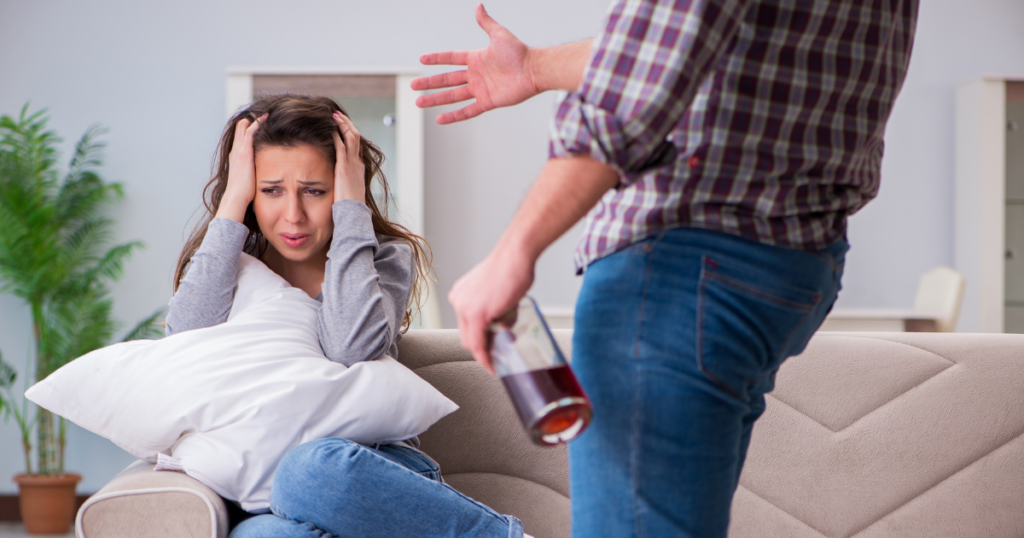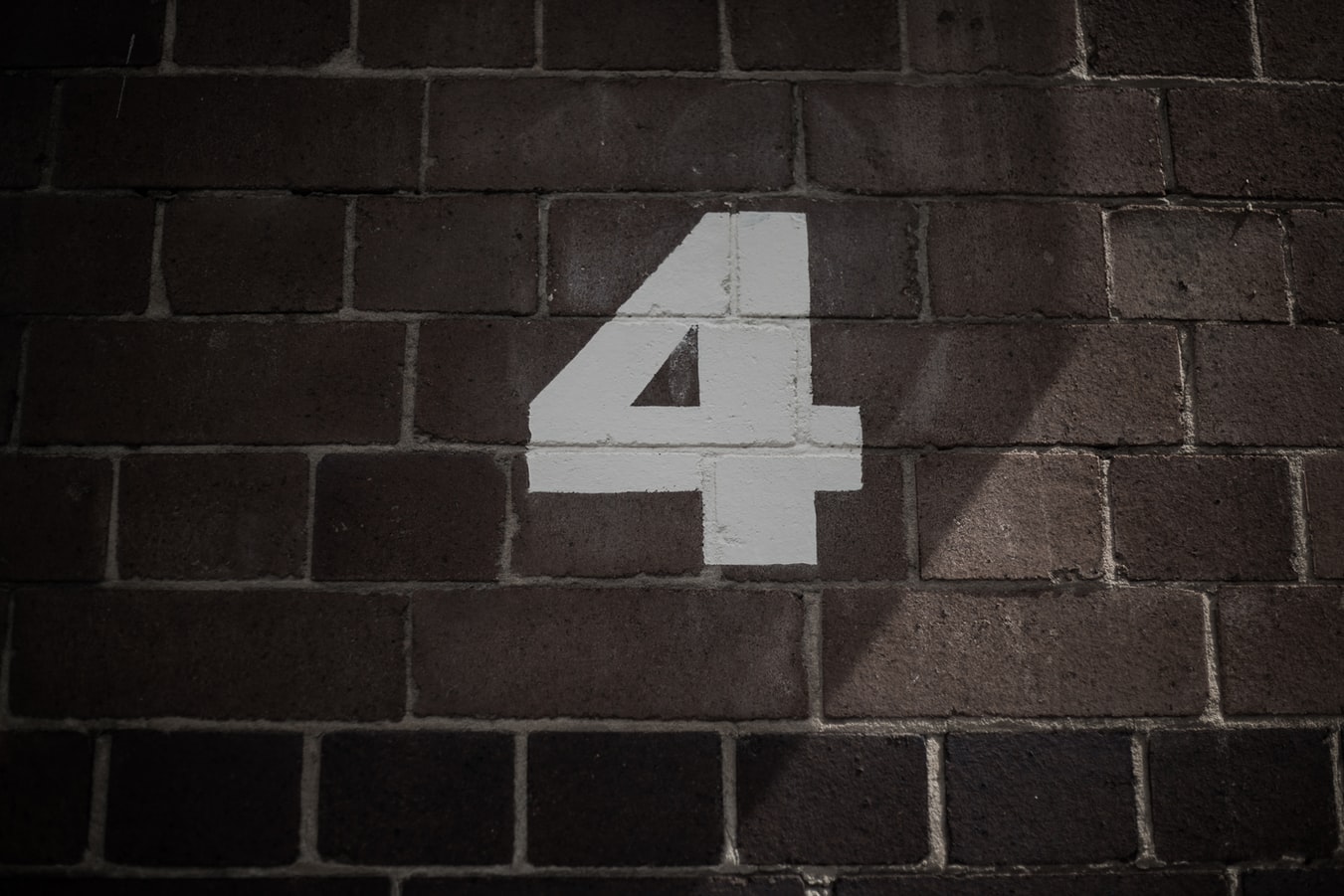Updated: August 21, 2023, at 11:52 a.m.
Do you ever feel like a completely different person when you’ve had too much to drink? Unfortunately, this is common for many struggling with substance abuse and mental health issues. Alcohol can make people do things they wouldn’t normally do, like become angry or aggressive. Between 50-86% of aggressive and violent episodes involve alcohol, according to a study published in the Psychology of Addictive Behaviors.
In this blog, we’ll discuss how drinking alcohol can make people behave aggressively and harm their mental health and how getting help for both substance abuse and mental health can aid recovery.
If anger and alcohol have taken over your life or a loved one’s, it’s time to seek help. Don’t wait. Call Landmark Recovery’s confidential admissions line at 888-448-0302 — we’re here 24/7/365, ready to guide you toward healing.
Can Alcohol Cause Anger Problems?
Research has shown that alcohol can cause anger problems and other mental health illnesses. Excessive alcohol consumption can:
- Impair judgment
- Lower inhibitions
- Disrupt brain chemistry
- Lead to increased aggression and irritability
According to a study published in the Indiana Journal of Psychological Medicine, alcohol use was significantly associated with increases in male physical aggression toward females. Another study referenced in Psychology Today revealed a direct correlation between alcohol consumption, anger, and hostility.
Do People Have Different Personalities When Drunk?
Alcohol is known for bringing out the drunk personalities of those who drink it, but we’re going to discuss how to stop being an angry drunk. There are several personality traits that many people display, but one of the most common and perhaps most dangerous is the “angry drunk.”
Drunk personalities include:
- The Emotional Drunk – Prone to weeping or pouring their heart out to friends.
- The Flirty Drunk – Seeks to chat up and get cozy with their romantic interests.
- The Social Drunk – Sober introverts who become drunk socialites, eager to talk to the world.
- The Angry Drunk – The angry drunk is infamous for turning unpredictable and unsafe after getting drunk. They usually drink a few and immediately become too aggressive for the given setting. They also take the slightest offense or insult and immediately turn things into an altercation.
Facts & Infographic on Alcoholism and Anger
This infographic summarizes data on alcoholism and anger and the rates at which violent offenses involved alcohol use.
Panel 1: According to the National Crime Victimization Survey (NCVS), alcohol is more likely than other drugs to be involved in substance-related violence.
- 32%t of violent offenders were drunk at the time of their offense
- 47% of homicides involved alcohol use by the offender
Panel 2: According to the National Institute on Alcohol Abuse and Alcoholism (NIAAA), 72% of men reported acting violently before seeking substance abuse treatment
Panel 3: According to Mind Your Anger, among men with alcohol and anger problems:
- Those with aggressive personalities of unmanaged anger are more susceptible to heart attacks and heart disease.
- Men who bottle up their anger or regularly lose their temper are two times as likely to have a stroke.
- People with anger problems are 2.7 times more likely to drink or smoke and are more at risk of blood clots.
4 Signs to Know If You Are an Angry Drunk
Angry drunks are usually well known for being the last person you want to invite for a night out, lest they get drunk and fight at the bar. If you’re an angry drunk, you may do things you regret in the morning if you don’t get blacked out and forget about it. So why do some of us become angry drunks?
We know that drinking alcohol affects the decision-making process and usually lowers our inhibitions, so being angry could indicate that someone has an underlying anger problem that comes out when they start drinking. Being an angry drunk can be difficult to determine, but here are four telltale signs:
- Anger Problems While Sober
- Being “Dry Drunk”
- Being Overly Aggressive or Violent
- Difficulty Controlling Your Drinking/Temper
Anger Problems While Sober
Do you have anger problems outside of your drinking? This could mean more than just having outbursts and difficulty controlling your emotions: You could have anger issues because you suppress your feelings, causing them to escape in large outbursts of anger at inappropriate times. If you have issues controlling your anger, alcohol will only worsen that situation, and it likely shows when you drink.
Being “Dry Drunk”
Drinking lowers inhibitions and causes us to engage in less-than-stellar behavior. “Dry drunk” is when you engage in this behavior without drinking. In other words, if you have poor impulse control, difficulty reading situations, or invasive behavior, you could be prone to angry drunk behavior when you are drinking.
Being Overly Aggressive or Violent
People are more likely to respond to emotional triggers when drinking, but even the slightest hint of offense could cause a fight for the angry drunk. If you’ve ever started or been involved in a drunken altercation, reflect on what happened and how the situation could have been handled better.
Difficulty Controlling Your Drinking/Temper
At one point, many drinkers have considered whether they should stop drinking altogether. For alcoholics, that question may come up daily, weekly, or monthly. There are different types of alcoholism, but one of the biggest indicators of an issue is when the person wants to quit drinking but cannot. If you have difficulty controlling your drinking behavior, odds are you likely have trouble controlling your temper while drinking.
How to Stop Being an Angry Drunk
To stop being an angry drunk, you must first identify and accept that you have a problem. Maybe you’ve heard from friends or a significant other that you become angry or hostile while drinking. Once you’ve accepted that you have a problem, you can begin to understand and remedy the situation.
Here are three ways to identify if you have a drinking problem:
- Identify What’s Making You Angry
- Find Support
- Moderate Your Drinking
Identify What’s Making You Angry
Anger comes from within and is a feeling that we all experience. We need anger to stand up for ourselves and others when something is wrong. An anger problem arises when we express our natural anger in harmful or unproductive ways in solving the dilemmas at hand. If you have problems with anger while drinking, you could be attempting to solve some issues that you feel unable to resolve, such as feeling inadequate, relationship problems, work problems, or other issues that feel out of your control. The important thing is to trace the steps back from your outburst and identify what sets you off.
Find Support
The best way to approach an anger problem is through the help of a support group or a clinically trained counselor at an alcohol rehab center. These groups will help you healthily express your feelings and provide tools to help you deal with your anger. You can look online to find anger support groups in your area, or if you feel that your drinking is a problem, you can also visit any Alcoholics Anonymous group nearby.
Moderate Your Drinking
If you’ve noticed that you’ve flown off the handle several times while drinking, it’s time to take a break from hard boozing and back away from the problem. You may even be using alcohol to cope with your anger problems, trying to numb your anger or perhaps hoping to release them in ways that feel cathartic at the time but do not help you in the long run. Moderating your drinking, either permanently or for a little while, will help you view the problem from a healthier, less clouded point of view.
If you or someone you know is struggling with substance abuse or searching for an inpatient addiction treatment facility, call us at 888-448-0302 to chat with a recovery specialist. We are available 24/7 to answer your questions and get the information you need to make the best recovery decision. Your call is 100% confidential, and we are ready to help you get started.
Why Do I Get Angry When I Drink?
The link between anger and alcoholism is complicated, but several factors explain why they are interrelated. For one, alcohol can be an excuse for aggressive and angry behavior. Actions while drunk are usually more socially acceptable or passed off as merely drunk behavior. Alcohol also induces tunnel vision, making anger seem the only appropriate response in a given situation. Alcohol also reduces inhibitions and makes you less afraid of the potential consequences of showing your anger, increasing the likelihood of an outburst. Lastly, alcohol also greatly impairs your decision-making and judgment skills, which makes controlling your anger much more difficult.
Wake Forest University School of Medicine professor David Friedman has researched drug abuse and addiction for 40 years. His answer to the link between alcoholism and anger is simple: “You probably won’t be surprised, but some people are simply more angry and hostile than others. It’s these folks who get the angriest when they drink.” Although this answer is simple and relatively straightforward, it has taken years of research to arrive at this statement definitively. Some of us seem to undergo a Jekyll-to-Hyde-like transformation while drinking because of a mix of personality traits, social science, and neuroscience. It all comes down to our natural inclination towards anger and our brain’s way of dealing with the effects of alcohol.
Alcohol and Your Personality
People with anger problems are most prone to becoming angry drunks, but it may not be obvious to others that someone has an anger problem. If you have a problem with silently harboring anger, you may likely let it spill out while drinking.
In a 2010 study conducted in Sweden, researchers found a link between people who suppress their anger and their likelihood of getting into drunken brawls. Because alcohol decreases our self-control, our pent-up rage is more likely to emerge while drinking. The study also found that those who suppress anger were more likely to drink themselves to the point of being drunk, which increased their likelihood of getting into a drunken altercation.
Another study published in 2011 showed that those who focus more on the present than the future were generally more aggressive and had difficulty considering the consequences of their actions. Alcohol creates a myopic tunnel effect for those who use it. For those who already don’t think about the future, this could easily lead to making a short-sighted decision and possibly getting into drunken altercations.
Alcohol Affects Empathy
Alcohol and other psychoactive substances are known for reducing our ability to recognize emotions and empathize with others. So it should be no surprise that alcohol makes it harder to recognize when we are threatening or hostile to someone else. Likewise, we may also misinterpret when someone is being normal and think they are acting hostile or antagonizing.
Think of the last time you or an angry-drunk friend interpreted someone else’s actions as insulting and getting into a fight when the whole thing could have been avoided. They say the best way to predict future behavior is to look at past behavior. Look at your own or a friend’s behavior and see if this kind of behavior is a pattern or not.
Neuroscience and Alcohol
Alcohol greatly affects all the chemical systems in our brains. Even just a few drinks can completely change the way our neurotransmitters talk to one another. This communication disruption can wreak havoc on your frontal lobe’s decision-making, judgment, and executive control.
Without your prefrontal cortex in control, some brain parts aren’t checked, resulting in impulsive thoughts and actions. If you take someone more prone to anger, they will be less likely to restrain themselves while drinking. Alcohol also disrupts your serotonin levels, which can disrupt your mood regulation. People who have lower-than-normal levels of serotonin tend to be more violent.
Alcohol, Aggression, and Violence
There is also a strong link between domestic violence and alcoholism. There is the stereotype of the drunken husband who returns home and physically abuses his wife, but this is an age-old convention that science has begun to debunk. Research has shown that heavy drinking is not the primary cause of domestic violence. Most of those guilty of domestic abuse are likely to engage in domestic violence after only a couple of alcoholic drinks, meaning that they are not drunk enough to blame their actions on impaired judgment.
Next Steps
If you or a friend have had altercations while drinking, you may ask yourself whether you have a problem with alcohol and anger. You may even consider whether it’s time to stop drinking entirely. If this isn’t your first time considering this, you should know it is the first sign of a possible drinking problem.
This is where Landmark Recovery can help. We help addicts every day by customizing treatment plans around the needs of our patients. Landmark will walk you through detoxing your body from alcohol and get you back on the right track. We take care of everything from counseling, therapy sessions, teaching about interventions, a wholesome diet, family networking, spiritual health, workshops, and aftercare planning to help you recover from an addiction. Contact Landmark Recovery today for more information about our detox, outpatient, and alcohol rehab inpatient services.

Choose Recovery Over Addiction
We're here 24/7 to help you get the care you need to live life on your terms, without drugs or alcohol. Talk to our recovery specialists today and learn about our integrated treatment programs.







